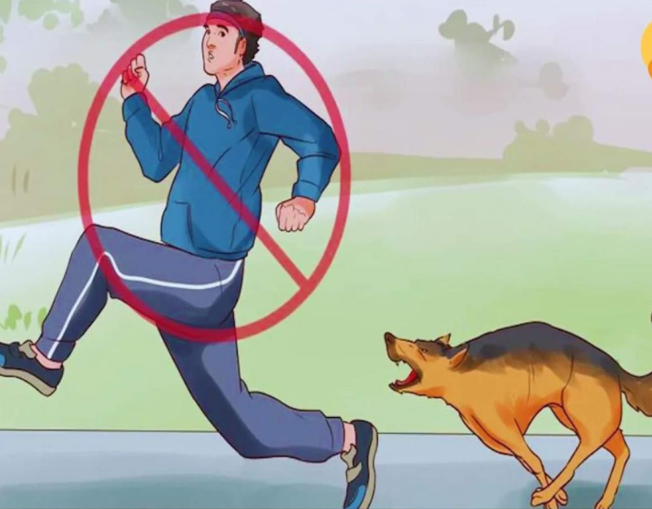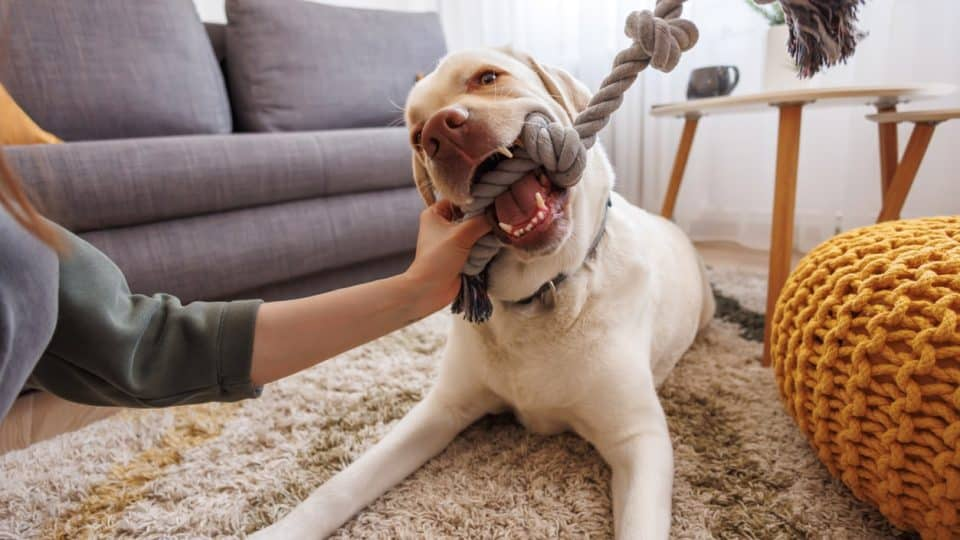If you’ve ever encountered a dog that seemed friendly one moment and then barked or even snapped at someone else, you might wonder what causes such behavior. The truth is, dogs rarely bark or bite without reason. Just like humans, dogs have their unique triggers that affect how they react to people. In this article, we’ll explore why dogs bark or bite certain individuals but remain calm around others. You’ll learn how to interpret these behaviors and prevent unwanted reactions.
Dogs Bark Because They Are Experiencing Something New

One of the primary reasons dogs bark is because they are encountering something unfamiliar. For dogs, the world is full of new sights, sounds, and smells, all of which can be overwhelming, especially if they haven’t been properly socialized. When a dog meets a stranger, they may bark because the person presents a novel situation—new scent, unfamiliar body language, or a different tone of voice. To a dog, these new factors could signal a potential threat, leading them to bark as a protective measure.
This behavior is especially common in dogs that are less social or haven’t had much exposure to various environments. New experiences make them cautious, and barking becomes their way of expressing uncertainty or fear.
Certain Traits Make Dogs Bark More Easily
Some human traits can make a dog more likely to bark or feel uneasy. Have you ever noticed that some dogs bark at you when you wear certain clothing or accessories? It’s not a coincidence.
- Wearing accessories like a hood or sunglasses: These items obscure parts of your face, making it harder for dogs to recognize you. To them, not being able to see your facial expressions may be interpreted as a threat.
- Facial hair: A large beard or mustache might make you look unfamiliar to the dog, which can cause them to bark out of confusion or fear.
- Tall and muscular physique: Some dogs may find a larger person intimidating, especially if they haven’t encountered many people of that build before.
- Deep, loud voice: A booming voice can be startling to a dog, leading them to bark or feel on edge.
- Pointing or staring directly into their eyes: In the animal kingdom, direct eye contact can be seen as a challenge or threat. Many dogs interpret a direct stare as confrontational, which might trigger barking or biting.
By being aware of how your appearance or behavior might affect a dog, you can adjust your actions to help the dog feel more at ease.
Dogs Protect Their Owners
Dogs are naturally loyal animals and are often protective of their owners. This protective instinct is one of the leading reasons dogs may bark or act aggressively toward strangers. When a dog perceives a threat to its owner or its home, barking becomes a way to warn the “intruder” to stay away.

It’s common to see this kind of behavior in guard dog breeds or dogs that have formed a particularly strong bond with their owner. When a stranger approaches, even if they mean no harm, the dog’s instinct to guard its territory and loved ones kicks in.
Dogs Can Sense a Person’s Character
Here’s where it gets even more interesting: many dog owners swear that their pets can judge a person’s character. And science backs this up! Studies suggest that dogs can assess whether someone is trustworthy. This is because dogs are excellent observers of human behavior, and they pick up on subtle cues that even we might miss.
For instance, if a person seems nervous or fidgety, a dog might interpret that behavior as suspicious. Similarly, dogs are often very loyal to their owners and will remember how others treat their family. If a person has been unfriendly or rude to their owner in the past, the dog will likely react negatively toward that person in the future.
Due to Past Bad Experiences
Just like humans, dogs carry memories from their past experiences. Unfortunately, if a dog has had negative interactions with people in the past, they might react defensively when they encounter someone who reminds them of those experiences.

For example, if a dog was mistreated by someone who wore a specific type of clothing or had a particular mannerism, they might bark or even bite if they encounter someone with similar traits. These negative memories stay with the dog, forming part of their instinctual defense mechanism.
How to Prevent Being Bitten by a Dog
Preventing a dog bite starts with understanding dog behavior and acting accordingly. Here are a few tips to help you avoid being bitten by a dog, especially if the dog seems uneasy around you:
- Treat dogs kindly when they are young: Early socialization is crucial. Puppies should be exposed to different people, sounds, and environments to help them grow into well-adjusted adult dogs. A well-socialized dog is less likely to feel threatened by new people or situations.
- Avoid making sudden movements: Dogs are highly sensitive to body language. Sudden or aggressive movements can startle them and cause a defensive reaction. Keep your movements calm and controlled when approaching an unfamiliar dog.
- Don’t make direct eye contact: While it might seem natural to look a dog in the eye, remember that dogs may interpret this as a threat. Instead, keep your gaze soft and avoid staring directly at the dog.
- Reward good behavior: If you’re a dog owner, you can train your dog not to bark or bite unnecessarily by using positive reinforcement. Reward them with treats when they behave calmly around new people or in new situations.

By understanding what triggers a dog’s barking or biting and adjusting your behavior accordingly, you can avoid negative encounters and build a more positive relationship with dogs.
Conclusion: Understanding a Dog’s Bark and Bite
While dogs are known as loyal and loving companions, their behavior can sometimes be unpredictable. A dog barking or biting doesn’t happen out of the blue; there’s always a reason behind it. Whether it’s due to new experiences, protective instincts, or past trauma, understanding these triggers helps us interact better with our furry friends.
By being mindful of your actions, the way you approach a dog, and their past experiences, you can reduce the chances of being barked at or bitten. Ultimately, every dog has its unique personality and sensitivities, and learning to respect those can lead to more harmonious interactions with man’s best friend.


